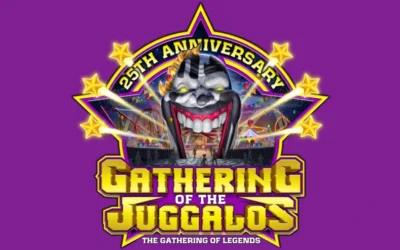Flanked by fellow Members of Congress and representatives from consumer groups and the concert industry, Rep. Bill Pascrell (D-NJ) Wednesday made clear that he and the others at a press conference in Washington, DC are not backing off their opposition to the proposed merger between Live Nation and Ticketmaster.
“It continues to be my view that this merger represents the greatest and most urgent threat to music fans across the country, and if approved will have far-reaching, long-lasting negative consequences for concert goers and nearly everyone involved in the live music business,” Pascrell said.
The press conference also marked the launch of a new Web site, TicketDisaster.org, created by the National Association of Ticket Brokers (NATB) and the National Consumers League, which is calling on the public to voice their opposition to the merger.
“Despite its ‘monopoly-like dominance’ controlling 70 to 80 percent of all concert ticket sales, Ticketmaster is unabashedly seeking to grow its empire – all to the detriment of the average fan,” the Web site states. “Ticketmaster is now trying to dampen competition by merging with Live Nation, the nation’s largest concert promoter and second largest primary ticket seller. That merger is coming under heavy fire from consumer and industry groups and Members of Congress, particularly because of the clear anti-consumer and anti-competitive effects.
“As the Department of Justice reaches the final round of reviewing this merger, only one question must be answered: will the merger lead to increased prices, poorer service, or less innovation? In this case, the answer is all of the above, which is why this merger needs to be blocked.”
Pascrell ticked off a list of areas that Live Nation Entertainment, the planned name of the combined companies, would control if the merger is allowed to proceed: artist management; record sales; promotion; licensing; venue control; parking; ticket sales; ticket resales; and venue concessions.
“There is little doubt that the result of this merger will be higher ticket prices, higher fees and chilling effects on consumers, business managers, artists, music fans, promoters in every state around the country,” Pascrell said.
He does not believe that any combination of concessions reportedly being discussed behind the scenes by the two companies, such as cable giant Comcast possibly acquiring some of the companies’ ticketing assets, could make the deal palatable. And, he added that Ticketmaster and Live Nation only began to start “playing nice” after February when the merger was announced, and Ticketmaster settled a complaint with New Jersey Attorney General Anne Milgram over Bruce Springsteen fans being redirected to higher priced tickets on the company’s secondary Web site TicketsNow.
“They went from 1 percent transparency to 2 percent,” Pascrell said.
Joining Pascrell were Rep. Joseph Courtney (D-CT), Rep. Steve Cohen (D-TN) and Rep. Peter Welch (D-VT), who signed a letter of opposition with dozens of other Members of Congress that was sent to the U.S. Department of Justice over the summer.
“This is textbook horizontal and vertical monopolies that are being proposed here, and there is no way that the consumer can possibly survive with a fair marketplace with that as an outcome,” Courtney said. “If we can’t get action from the Justice Department to block this proposed monopoly merger, then I don’t know what accomplishments you could possibly point to where you have a viable antitrust policy.”
“I don’t blame the companies, I think it’s a mistake to do so,” Welch added. “Every single company in the world wants a monopoly, that’s their business to try to make as much money as they can. That’s the American way, but the American way also requires competition, and that’s why we have antitrust laws.”
Also in attendance Wednesday were David Balto, Senior Fellow, Center for American Progress and Former Federal Trade Commission Policy Director; Sally Greenberg, Executive Director, National Consumers League; Tom Patania, immediate past president, and Gary Adler, legal counsel for the NATB; Bert Foer, President, American Antitrust Institute; and Seth Hurwitz, legendary promoter/owner of the 9:30 Club in Washington, D.C.
The coalition of opponents stretched beyond those in attendance. “I think the merger will be bad,” said Jeff Kline, President of digital ticketing company Veritix. “Any time you take away competition and consolidate that much power in the hands of one entity, consumers and content owners stand to suffer.”




